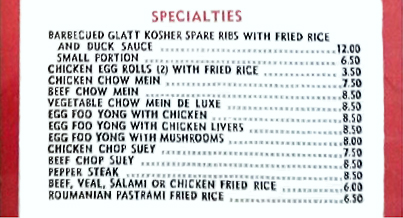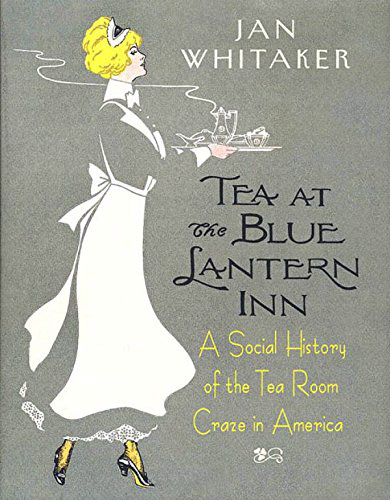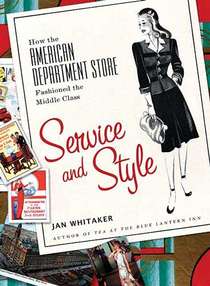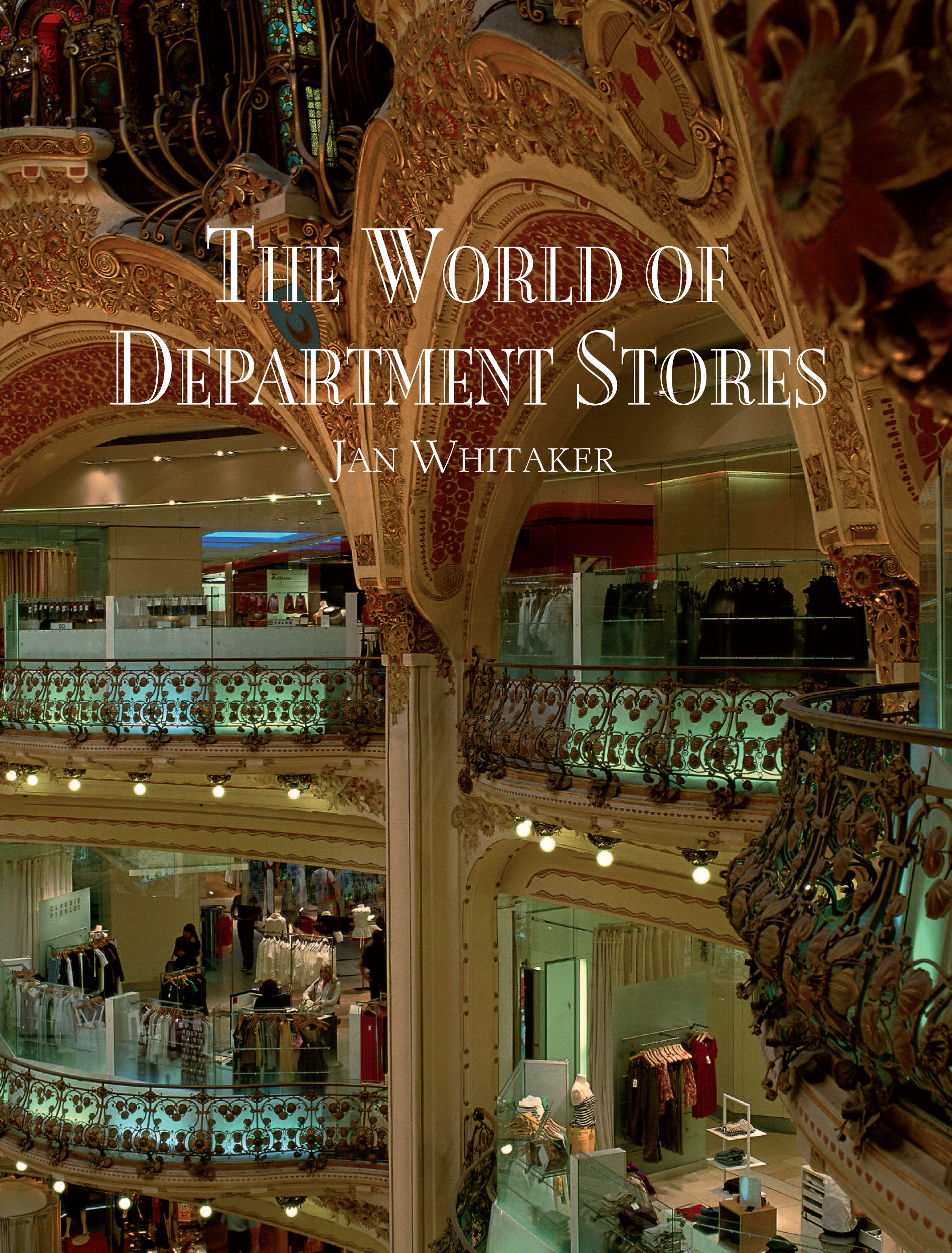 Readers may be familiar with the custom among many Jews of going to a Chinese restaurant on Christmas Day. Hard as I tried I could not determine when this custom began, although based on advertisements I did get the sense that the tradition of going to the movies on Christmas Day may have begun in the 1920s.
Readers may be familiar with the custom among many Jews of going to a Chinese restaurant on Christmas Day. Hard as I tried I could not determine when this custom began, although based on advertisements I did get the sense that the tradition of going to the movies on Christmas Day may have begun in the 1920s.
That is the same decade for which I found the earliest advertisements by Chinese restaurants in Jewish newspapers. [Wong Yie, American Israelite, 1922, Cincinnati] I didn’t find any Chinese restaurant ads that invited readers to visit on Christmas Day, though I saw some that reminded them to make reservations for New Year’s Eve. Some also mentioned that they were near movie theaters. In the 1930s some wished readers of Jewish papers happy new year at Rosh Hashanah.
So, even though I don’t know when Jews began going to Chinese restaurants on Christmas Day, I suspect that the affinity between Jews and Chinese restaurants became notable in the 1920s.
While the 1920s may have marked the blossoming of Jewish patronage of Chinese restaurants, I did find one earlier example of a Chinese restaurant said to be patronized by Jewish businessmen. According to a New York Tribune story of 1907, Chinese Delmonico’s on Pell Street near the wholesale center was kosher. At “Kosher Delmonico’s,” as it was called in the story, a French chef prepared mushroom delicacies, lotus lily seed soups, and other dishes for lunch using no dairy products or “game of the kind that is shot.”
 Bernstein-on-Essex, a deli that opened in the 1920s on New York’s lower East Side, is often credited with being the first restaurant serving kosher Chinese food – a 1959 addition to the menu [above menu fragment from a later date]. But it may not have actually been the first: Aside from Chinese Delmonico’s, there was said to be a kosher Chinese restaurant on Temple Street in the Jewish section of Los Angeles in 1929.
Bernstein-on-Essex, a deli that opened in the 1920s on New York’s lower East Side, is often credited with being the first restaurant serving kosher Chinese food – a 1959 addition to the menu [above menu fragment from a later date]. But it may not have actually been the first: Aside from Chinese Delmonico’s, there was said to be a kosher Chinese restaurant on Temple Street in the Jewish section of Los Angeles in 1929.
 What Bernstein’s might have been an early example of, though, was a Jewish restaurant that served kosher Chinese food – in contrast to a Chinese restaurant that was kosher, which was rarer. Although Chinese restaurants generally did not feature dairy dishes, typically they would serve pork, as well as shellfish, meat that wasn’t from kosher butchers, and noodles cooked in lard.
What Bernstein’s might have been an early example of, though, was a Jewish restaurant that served kosher Chinese food – in contrast to a Chinese restaurant that was kosher, which was rarer. Although Chinese restaurants generally did not feature dairy dishes, typically they would serve pork, as well as shellfish, meat that wasn’t from kosher butchers, and noodles cooked in lard.
For the most part Jews had to be willing to make whatever adjustments they found necessary in order to enjoy Chinese restaurants. This could mean not ordering pork, shrimp, or lobster dishes, or, as many writers have pointed out, accepting dishes with pork that had been minced and “hidden” in wontons. Nonetheless, not everyone was so careful. According to Haiming Leu, author of A History of Chinese Food in the United States, one of the most popular dishes with American Jews was moo shu pork. Such behavior brought an angry comment from a rabbi writing in Newark’s Jewish Chronicle in 1929: “The writer has seen families leaving an orthodox synagogue on Sabbath noon and taking the new Bar Mitzvah, who has just pledged his allegiances to Jewish tradition, into a Chinese restaurant for a salt-pork chop suey meal.”
While the topic of Jews and Chinese restaurants has been a popular one with scholars and journalists, it’s worth noting that historically Jews were not the only non-Chinese cultural group that heavily patronized Chinese restaurants. Even though in the early 1930s Jews were estimated to make up 60% of the white clientele of Chinese restaurants in Philadelphia and New York, the estimate was that white customers totaled a minority of patrons. The rest of non-Chinese customers were Black.
After WWII Jews began moving from the inner cities and into the suburbs. Meanwhile, most African-Americans stayed behind. Many Chinese proprietors courted their Jewish customers, often opening suburban restaurants with pleasant interiors. In Black neighborhoods often the facilities tended to be poorer, many for carry-out only, and some even outfitted with protective bars and orders taken and delivered through small hatches.
 Another change in the postwar years was the increase in the number of kosher Chinese restaurants, some, such as Sabra and the popular Moshe Peking, with Jewish owners. The 1970s and 1980s saw a rise of kosher Chinese restaurants adhering to what appeared to be a stricter standard in how food was obtained and prepared and also in hours of operation, being closed on the Jewish Sabbath as well as holidays. Additionally, they had a rabbi on hand to inspect food preparation.
Another change in the postwar years was the increase in the number of kosher Chinese restaurants, some, such as Sabra and the popular Moshe Peking, with Jewish owners. The 1970s and 1980s saw a rise of kosher Chinese restaurants adhering to what appeared to be a stricter standard in how food was obtained and prepared and also in hours of operation, being closed on the Jewish Sabbath as well as holidays. Additionally, they had a rabbi on hand to inspect food preparation.
Happy Holidays to readers, whatever you may be eating on December 25!
© Jan Whitaker, 2019













 It's great to hear from readers and I take time to answer queries. I can't always find what you are looking for, but I do appreciate getting thank yous no matter what the outcome.
It's great to hear from readers and I take time to answer queries. I can't always find what you are looking for, but I do appreciate getting thank yous no matter what the outcome.



Didn’t know it was a tradition. One year our little Toyota got stuck in a blizzard in Oregon’s Blue Mountains of the Oregon Trail. It was Christmas Eve. Where to eat? The small town had a Chinese restaurant and that’s where we ate.
This post reminds me of the latest trend among radical feminists: food appropriation! See my post: Cultural Food Appropriation Is Snobbery. https://ninaonfood.com/2018/12/18/cultural-food-appropriation-is-snobbery/
This Christmas the situation is being reversed. We know a young Chinese woman who is doing a Masters degree at Cambridge (England) and was going to be spending the holiday alone. She thought she would eat in a restaurant, go to the museums and then go to the cinema. I had to explain to her that all those places would be closed over Xmas.
So she is coming north to spend 4 days with us and have a very Scottish Xmas…carol service, Pantomime, Queen’s Speech, roast meat, loads of yummy vegetables, smoked salmon, haggis, mulled wine, whiskey, blazing homemade Xmas Pudding, mince pies, Brandy Butter, board games etc. Not to mention brisk walks along the coastal path!!
Wow. She’s a lucky one!
I am not Jewish but in 1963 my family ate Christmas dinner in a Chinese restaurant in Beira Mozambique, (a traditional Rhodesian holiday). We of course ate Mozambican / Portuguese peri peri chicken, so how’s that for multiculturalism.
That ranks!
Wow John Groves, As a Northern Rhodesian child in the 1950s/60s my first introduction to Chinese food was also in Beira! Had Peri Peri Chicken and Mozambique prawns but at a different restaurant. Happy memories!
Very interesting!
Wow. The more I read on blogs, the more comes back to me, of things that I miss. I haven’t been to a Chinese restaurant in over ten years or so. Thanks for the remnder. I won’t go on Christmas but I sure will eventually get there. Merry Christmas, Happy Channukah, and Happy Holidays peace
Happy holidays to you, and your loved ones. Thank you for your wonderful blog and research. I grew up in NYC and miss all those wonderful Cantonese places that catered to Jewish customers. Our family favorite was Sy Ho on Hillside Avenue in Hollis, gone for many year but I was lucky enough to find a matchbook on Ebay.
The tradition started because all other restaurants were and are closed on Christmas Day. I remember driving all over town in 1970 in Los Angeles and settling for Chinese. Their restaurants are dependable for staying open on December 25th and customers are greeted with a smile.
One of the many explanations I’ve heard — and quite possibly adopted by Chinese restaurants specifically for their Jewish patrons.